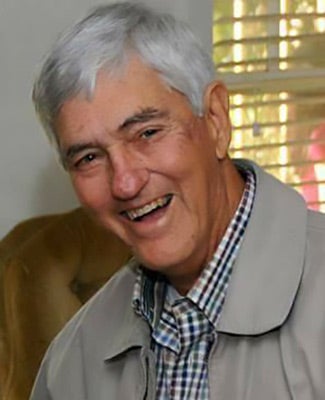BOE: Driver’s leadership helped education throughout Alabama
Published 12:00 am Wednesday, May 24, 2017

- Ronnie Driver
Covington County Board of Education members took time Tuesday to pay tribute to former superintendent Ronnie Driver, who died last week.
Driver retired in 2006 after 42 years in education, nine of which he spent as the county’s superintendent.
Board member James T. Prestwood said the former superintendent was under more pressure to succeed than any other of the county’s superintendents.
“But he put the pressure on himself,” Prestwood said.
Prestwood would know. He and Driver grew up as foes on the basketball court – Prestwood at Pleasant Home, Driver at Straughn.
“When my coach was yelling at me to shoot, and I couldn’t shoot because Ronnie was pulling on my shorts, I didn’t like him very much,” Prestwood recalled.
Later, the two were roommates at what was then Troy State University, where they both pursued degrees in education with the hope of coaching basketball. The former foes became lifelong friends.
In his nine years as superintendent, Driver dealt with unitary status (the court’s designation when a school district has eliminated the effects of past segregation); 16th section litigation; and the 10 mil minimum tax for education.
“This will influence generations to come,” Prestwood said. “He spent a lot of hours working on some very difficult issues. He was so determined. My hat was off to him then, and is now.”
Many of his efforts made education funding better not just in Covington County, but across the state, board member Jeff Bailey said.
“The 16th section lawsuit affected 30-something school systems, but it came from Covington County,” Bailey said.
When Alabama became a state in 1819, Congress granted the 16th section of land in each township to the state for public education. The 16th Section Lands were granted under the condition that they be preserved for the benefit of school children residing in the township.
In some cases, the 16th sections were not available, so Congress periodically granted other parcels, indemnity lands, in lieu of 16th Section Lands.
Some of the land was sold, and the proceeds were placed in Alabama’s State Bank. The deposits were lost when the bank failed in 1843. Annually, the state grants interest at a rate of 6 percent on the principal lost to failure of the State Bank, and on the proceeds of the past sale of school lands.
At the end of fiscal year 2000, the balance of funds in the account totaled more than $36 million. In 2002, the legislature transferred the monies to the Education Trust Fund. But in August of 2002, at Driver’s urging, the Covington County Board of Education filed suit to stop the transfer
“We were suing the governor,” Bailey said. “That was a little bit risky.”
Board attorney Allen Woodard said, “It dawned on Ronnie faster than anybody that Siegelman was wrong.
“Nobody wanted to go in with us (on the lawsuit),” Woodard said. “He went to the board and the board understood exactly.”
It became a class-action lawsuit, and the money was restored to the school systems. But Ronnie Driver’s wisdom didn’t stop there.
“Mr. Driver recommended that we save our money and live off the interest,” Prestwood said. “We did and we still have it. That was real important.”
In addition to those major projects, Ronnie Driver also built a new high school at Straughn, and also had a liver transplant.
“Most people didn’t know he was sick,” current Superintendent Shannon Driver said of his father.
The elder Driver had surgery to repair a hole in his heart in his 30s. He recovered from the heart portion of the surgery, but developed hepatitis C as a result of a blood transfusion during the surgery.
“Back then, they treated hepatitis with interferon,” Shannon Driver said. “He said it made you feel like you had the flu every day. But he would take his treatments and come on to work.”
Even school board members didn’t know Ronnie Driver was on a transplant list. He got the call from UAB at work.
“He told them he was busy and asked if he could wait for the next one,” Shannon Driver recalled. “They told him that wasn’t how it worked.”
So the superintendent called all of the central office employees – including his wife, who was then the chief financial officer – together, and told them he’d be out for a few days.
“Mother said the whole way to Birmingham, he was on that old car phone, dictating to secretaries what needed to be done,” Shannon Driver said.
Board member Sonny Thomasson was principal of Straughn at the time, and didn’t know anything was wrong with his boss.
“There was a note on the fax machine that said, ‘going to Birmingham for a liver transplant, see you in a few days.’ ”
That Ronnie Driver was beloved was evidenced by the crowds who attended his wake and funeral this past weekend, his son said.
“There were some who stood in line for three and a half hours,” Shannon Driver said.
Both were held at Good News Baptist Chapel, where Ronnie Driver had been the minister of music, and led the choir as recently as four weeks ago. The elder Mr. Driver was an accomplished pianist who had travelled the south as a child with two of his siblings as the Driver Trio.
There was one thing for which his father did not plan, Shannon Driver said.
“He never talked about a funeral service,” he said. “He was always looking ahead. He had to be that way with his health issues.”
On the day before his death, he was directing the cutting of hay and the application of fertilizer on the family’s farm – still planning for the future.




